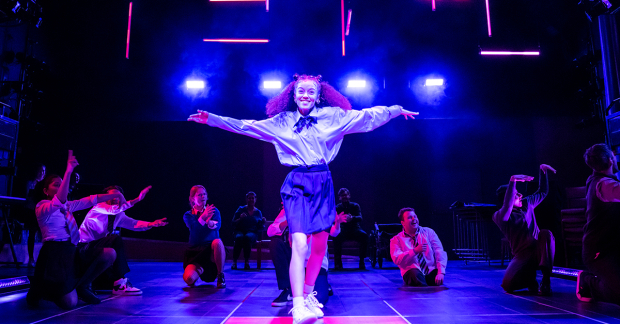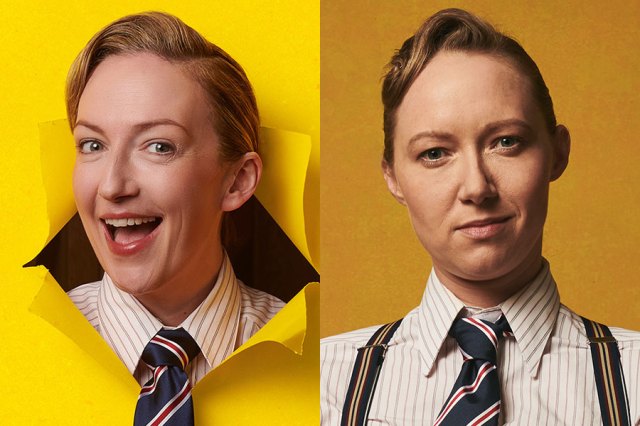
© Johan Persson
Alecky Blythe has an impeccable track record for verbatim theatre-making, which sees actors give direct voice to testimony by real-life subjects. But here, in her biggest project to date, she fails to find the right balance of strong material and intuitive editing that has made her previous work, notably London Road at this address, shine so brightly.
Based on 656 hours of interviews and focussing on 12 teenagers over five years, Our Generation promises a 360 look at a group that have come of age during Trump, Brexit and coronavirus. Indeed, publicity material gushes that it's a story "too extraordinary to be fiction". But there is little here that merits such a label, and the running time of three hours and 40 minutes is indulgent in the extreme. There are moments of great humour and profundity, but this feels like watching a very rough first cut, not a final edit.
Part of the issue stems from the broad selection of subjects. The range on paper is impressive – covering all four countries of the UK and a cross-section of class and racial demographics. A Cambridgeshire public schoolboy, a Kosovan-British basketball prodigy, a girl from north Wales whose dad is in prison. But it's difficult to get much of a hold on each one, while some get very short shrift. There are common themes, such as the stress exams and social media exert regardless of background, but ultimately, despite the epic running time, we rarely get further than skin-deep.
We're hit with a rapid number of overlapping scenes. The cast are on stage most of the time and segue in and out of characters like a frenetic carousel. Although they join together for brief ensemble moments, notably an outstanding acapella rendition of "Some Nights" at the end of the first of three parts, mostly they exist, like the characters of Under Milk Wood, in a state of conjoined isolation. Which is all well and good, but it's fatally short on overarching narrative. Daniel Evans, making his National Theatre directing debut (this is a co-production with Chichester), does admirable work in the ensemble scenes, but elsewhere it feels disjointed to the point of unintelligibility. The third part, which centres on the lockdown, promises much but ultimately fails to shine much light on this era-defining event.
Which is a shame, because the cast give some outstanding performances that contain heart-wrenching moments. Rachelle Diedericks' Ierum coming to terms with her weight in an image-obsessed culture; Sarita Gabony's Mia realising her boyfriend is repeating her father's abusive behaviour; Joe Bolland's Lucas acknowledging that a life of privilege is no shield from mental health issues; these are just a few. There is also strong support from Debbie Chazen, Hasan Dixon and Stephanie Street, who voice a number of teachers and parents.
As a documentary undertaking, Our Generation is undoubtedly impressive – Blythe recruited five young collaborators to help gather the material – and has resonances with the ongoing TV series Up. The smart design of Vicki Mortimer has nods to Curious Incident with its luminous light bars and projections. But as a piece of theatre, it is heavy going, its sheer ambition also its greatest weakness. This is a generation that has had it especially tough – "we'll be part of the apocalypse", predicts 12 year-old Annabella – and their stories deserve a clearer airing.












